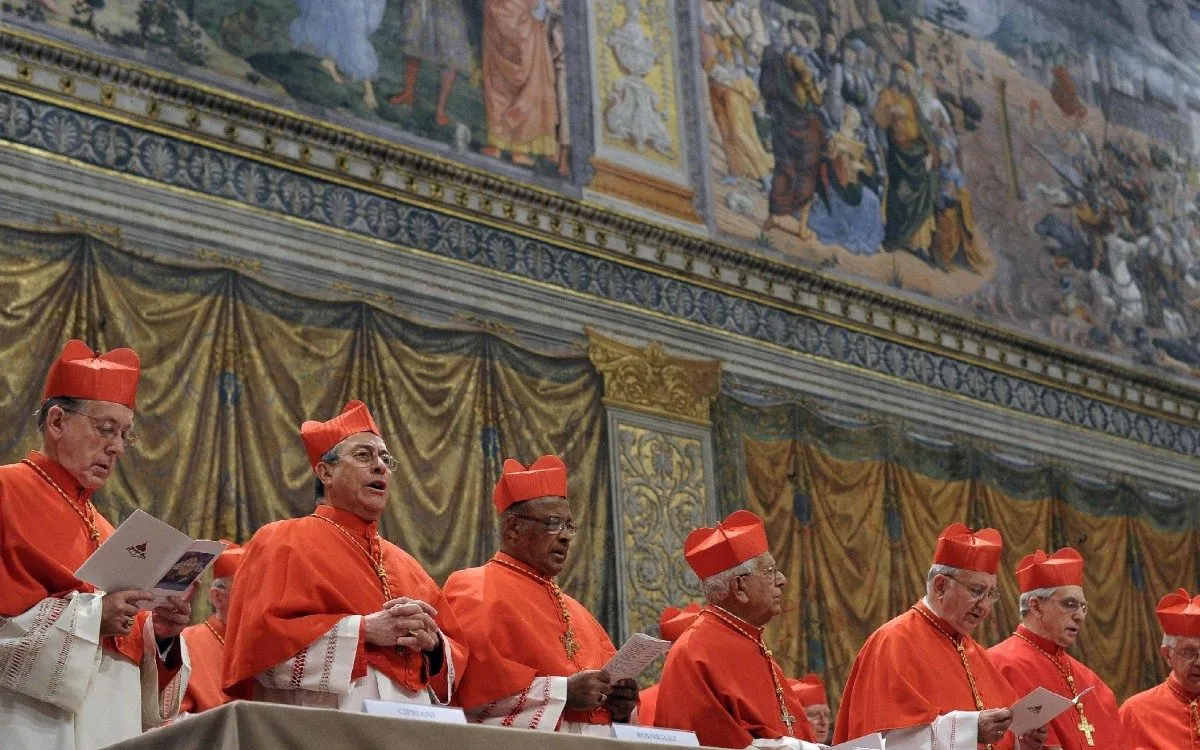
The College of Cardinals comprises 135 Cardinal Electors who represent 71 different countries across five continents. This diverse group is a significant reflection of the Catholic Church's commitment to global representation. Notably, more than three-quarters of these Cardinals (108) were appointed by Pope Francis, while 22 were created by Benedict XVI, and five by St. John Paul II, making the latter group the “veterans” of the upcoming Conclave. Among these senior Cardinals are notable figures such as French Cardinal Philippe Barbarin, Croatian Cardinal Josip Bozanić, Bosnia and Herzegovina's Cardinal Vinko Puljić, and Ghana's Cardinal Peter Turkson.
Over his 12-year pontificate, Pope Francis has profoundly reshaped the College of Cardinals, steering it towards a less euro-centric and more international representation. This change aligns with his vision of shifting the center of gravity of Catholicism towards the Global South and focusing on the marginalized communities worldwide. For the first time, 12 nations will be represented by their native Cardinal Electors, showcasing a significant shift in the Church's demographics. These nations include:
Cardinal Chibly Langlois from Haiti Cardinal Arlindo Furtado Gomes from Cape Verde Cardinal Dieudonné Nzapalainga from the Central African Republic Cardinal John Ribat from Papua New Guinea Cardinal Sebastian Francis from Malaysia Cardinal Anders Arborelius from Sweden Cardinal Jean-Claude Hollerich from Luxembourg Cardinal Virgilio do Carmo da Silva from Timor Leste Cardinal William Seng Chye Goh from Singapore Cardinal Adalberto Martínez Flores from Paraguay Cardinal Stephen Ameyu Martin Mulla from South Sudan Cardinal Ladislav Nemet from SerbiaDespite the increasing international representation, Europe maintains a significant presence in the College of Cardinals, with 53 Cardinal Electors. Among them, Italy leads with the highest number at 19, followed by France with 6 and Spain with 5. The remaining composition includes 37 Cardinals from the Americas, 23 from Asia, 18 from Africa, and 4 from Oceania. This demographic balance highlights that while European Cardinals still dominate, the collective weight of the Americas and other regions is becoming more pronounced.
Regarding age, the youngest Cardinal in the College is the Australian, Ukrainian-born Mikola Bychok, who is currently 45 years old. In contrast, the oldest is the Spaniard Carlos Osoro Sierra, aged 79. Among the Cardinal Electors, six were born in the 1970s, including:
Baldassarre Reina (Italy, 1970) Frank Leo (Canada, 1971) Rolandas Makrickas (Lithuania, 1972) George Jacob Koovaka (India, 1973) Américo Manuel Alves Aguiar (Portugal, 1973) Giorgio Marengo (Italy, 1973)The age distribution among the Cardinals is diverse, with 50 born in the 1940s, 47 in the 1950s, and 31 in the 1960s. Notably, the most represented birth year is 1947, which includes 13 Cardinals who are currently 78 years old or approaching that age.
Among the Cardinal Electors, 33 belong to 18 different religious orders, highlighting the rich tapestry of the Church's leadership. The most represented group is the Salesians, with five members, including:
Cardinal Charles Maung Bo Cardinal Virgilio Do Carmo da Silva Ángel Fernández Artime Cristóbal López Romero Daniel Sturla BerhouetOther notable religious orders include:
Four from the Order of Friars Minor Four Jesuits Three Conventual Franciscans Two Dominicans Two Redemptorists Two members of the Divine Word MissionariesAdditionally, there are representatives from several other congregations, including the Augustinians, Capuchins, and Scalabrinians, further enriching the diversity within the College.
As the Conclave approaches, it is important to note that of the 135 Cardinals eligible to vote, two have confirmed their absence due to health reasons, reducing the total number of participating Cardinals to 133. This highlights the importance of each Cardinal's presence in the decision-making process that will shape the future leadership of the Catholic Church.